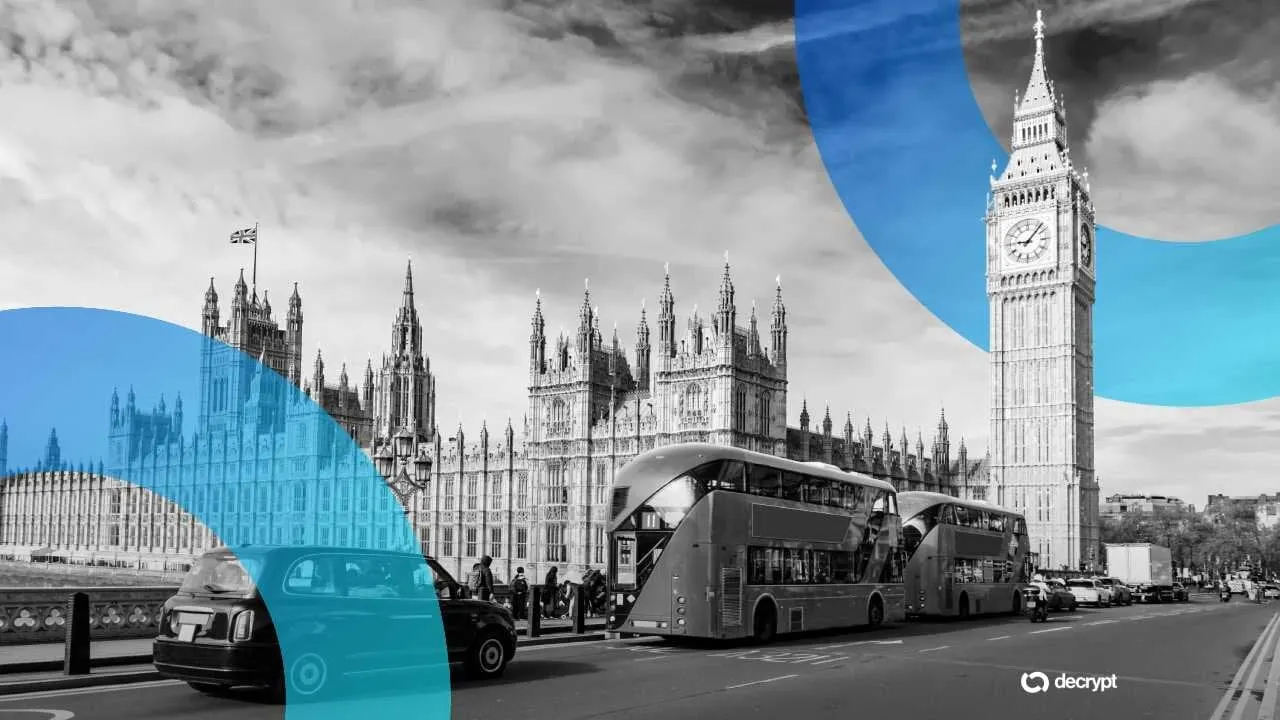In brief
- The U.K. government is seeking to keep most of the £5 billion ($7 billion) in Bitcoin it seized in 2018 from Zhimin Qian, who has pleaded guilty to possessing criminal property.
- The fraud’s victims have opened civil proceedings aimed at securing compensation, with the first hearing due in January.
- Legal experts suggest that, while the victims are entitled to compensation under English Law, they may receive payment equal only to the value they lost at the time.
The U.K. Government is seeking to keep most of the $7 billion in Bitcoin it seized in connection with a Chinese investment fraud, following the conviction of the fraud’s alleged organizer this week.
Zhimin Qian pleaded guilty on counts of possessing and transferring criminal property at Southwark Crown Court on Monday, following last year’s conviction of her assistant Seng Hok Ling (also known as Jian Wen) on similar counts.
This conviction now raises the question of who will keep the 61,000 BTC originally seized by UK authorities in 2018, with upwards of 120,000 victims in China seeking compensation for their losses.
The Crown Prosecution Service has initiated civil recovery proceedings at the U.K.’s High Court, which will host the next hearing in the case in January.
Compensating the victims
Qian conducted an extensive investment fraud scheme between 2014-2017, with the illegally obtained funds converted into Bitcoin.
Deciding how to compensate the fraud’s victims could be a difficult process, yet legal experts suggest that the claimants are entitled to compensation, provided that they can establish a sufficient link to the seized BTC.
“I am not sure that English Law is on the U.K. government’s side here on whether it can keep the seized Bitcoin,” Ashley Fairbrother, a partner at Edmonds Marshall McMahon, told Decrypt.
Fairbrother noted that the fraud’s victims have made and will be able to make applications under Section 281 of the Proceeds of Crime Act 2002, and that their right to submit a claim to frozen property under the latter act is well established.
“Ordinary equitable tracing principles apply and a victim can establish a proprietary claim through different flexible routes involving trust law,” he said. “The victims are entitled to cherry pick the route that best favours them.”
While there is more than one route to claim entitlement to the seized property, the High Court may ultimately adopt an approach that better suits the U.K. government.
According to Fairbrother, this includes “a pari passu [proportional distribution] approach, allowing victims to take the funds in proportion to their contributions” to the fraudulent invest scheme.
Fairbrother cited the case of Robb v The National Crime Agency, for which “each of the victim’s shares were to be calculated by establishing their individual payments as a percentage of the total investors' payments and applying that same percentage to the fund.”
Such an approach may “substantially” aid the fraud’s victims, who originally lost around £640 million to the fraud, but who are seeking a return of their property plus any market profit.
However, Fairbrother also suggested that, even if the victims’ entitlement is established as part of civil proceedings, they may receive compensation equal only to the value they lost at the time.
“In recent cases I have been involved in, the Courts have compensated the victim up to the value of the money they lost, in GBP rather than BTC,” he said. “This approach would see all of the victims compensated up to the value of the sums they lost in fiat currency, and the UK State to benefit from the substantial increase in the value of BTC.”
The outcome may therefore prove unsatisfactory to the victims, a large group of which is being represented by London-based international law firm Fieldfisher, which is cooperating with GEN Law in China.
In a statement to Decrypt, William Glover and Stephen Cartwright—who are working on the case—said that some of the victims have “lost their life savings,” with many of those affected being vulnerable or elderly.
“The victims have been without their property for some ten years now and are entitled to recover their property from the Bitcoin frozen in this jurisdiction,” they said.
Glover and Cartwright also stated that the frozen Bitcoin does not belong to the U.K. state.
They added, “the UK state does not have the right to freely dispose of the frozen Bitcoin over victims' legitimate legal and proprietary interests."
Given such views, the approaching civil proceedings could prove contentious, and could potentially extend into 2027.
Hodl or sell?
Even assuming that the U.K. government does establish its prerogative to retain most of the frozen BTC, there will emerge the question of whether to sell the funds or hold onto them.
Per the Financial Times, unnamed Treasury officials have reportedly raised questions in private over whether the crypto windfall could go towards plugging a ‘black hole’ of between $34 billion and $67 billion in the U.K.'s public finances. HM Treasury did not immediately respond to Decrypt's request for comment.
However, were the U.K. government to sell the seized Bitcoin, there remains a chance that the it could risk a repeat of its controversial 1999 sale of gold, at a time when gold prices were in a bear market.

